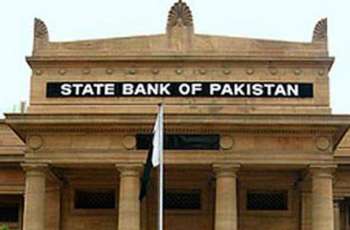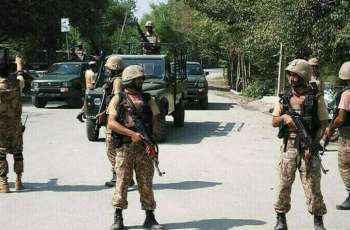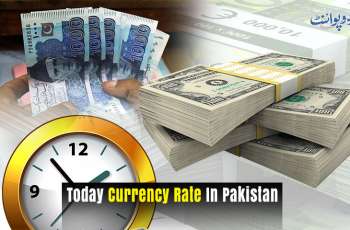BRUSSELS/MOSCOW (Pakistan Point News / Sputnik - 09th January, 2020) The United States and Iran appeared to be backing down from an open conflict on Wednesday after teetering on the brink of a crisis for days in a fiery war of words.
The killing in Iraq of the top commander of Iran's elite Quds Force triggered a storm in Tehran last Friday, with crowds in the streets chanting for revenge.
Retribution was seemingly delivered in the early hours of Wednesday when over a dozen Iranian ballistic missiles struck Iraqi bases hosting US troops. Iraq was warned of the attack beforehand.
In a much-expected showdown, US President Donald Trump held a press conference later that day to assure the nation that all was well, no one was hurt and that the damage was minimal.
The apparent climbdown from earlier threats to respond "perhaps in a disproportionate manner" to any retaliation from Iran was noted with relief by the UN chief who praised the rivals for walking back from a confrontation.
The scale of Iran's response seems like a face-saving measure, Vincent Eiffling, an expert on the middle East from Belgium-based UCLouvain, told Sputnik.
Iran initially claimed that 80 people had been killed in two strikes on the Erbil and Al-Asad bases north and west of Baghdad � the first direct attack by Iran on the US since the Tehran embassy seizure of 1979.
"What the Iranian government wants now is to save face ... Their response may end there. I believe that for the two belligerents, the Strait of Hormuz at the exit of the Persian Gulf is a 'no war area,'" he said.
Iranian Foreign Minister Mohammad Javad Zarif indicated that the missile attack was a "proportionate measure" taken in self-defense against bases that had been used by the US to strike at its military officials. He reiterated that Iran did not seek further escalation.
As much was hinted by President Trump who made no mention of further strikes on Iran, pledging instead a new round of sanctions � a painful but routine approach that Washington has taken on many occasions.
In other developments, the Pentagon has not heeded the call of the Iraqi parliament's Shiite faction for all foreign troops to leave the country; Zarif was again denied a US visa to go to a UN meeting in New York; while several commercial airlines rerouted their flights away from Iran, Iraq and the Persian Gulf.
The raids on US bases marked a turning point in the regional escalation even though US and Iranian leaders seemed to want to quickly calm the game. All influential capitals, from Moscow to Paris, Berlin and Beijing have called for restraint.
But the averted crisis made political experts think how the US and Iran got there and whether a repetition could be entirely ruled out. In Germany, liberal FDP politician Alexander Graf Lambsdorff warned about the possibility of a "real war by mistake."
"The belligerents have not been careful in recent months. They provoked each other," Elena Aoun, a political sciences professor from UCLouvain, told Sputnik, although she noted that Iran's response seemed to be checked.
Thierry Mariani, a French member of the European Parliament for the right-wing National Rally, praised Iran for taking "a path of moderation" but laid the blame with the United States, which, he claimed, had started the conflict by quitting the landmark nuclear deal with Iran.
Trump's unpredictable behavior makes Iran, "the perfect culprit," look balanced in its reactions and more concerned with respect for law, Aoun agreed. She warned that the two regional rivals could wade into a declared war without meaning to.
She also cautioned against writing off Shiite Muslims in the Middle East, the so-called Shiite Crescent, which Iran has nurtured in Syria, Lebanon and Yemen for over a decade. Although branded as Iran's proxies, these forces are capable of making own decisions, including taking revenge on the US.
"Proxies are not muppets and they have their own grievances, their own agendas. And they might be willing also to respond and take revenge," Aoun stressed.
The 2015 nuclear deal with Iran, which seemed to have been pushed to the sidelines by an impending military conflict, returned to the limelight on Sunday after Tehran announced it was no longer bound by its core limits.
Trump demanded again in his Wednesday speech that Iran abandon its alleged ambition to build a nuclear weapon and called on other signatories to break away from the pact.
Thomas Shea, from the Federation of American Scientists, argued that the chances of Iran having a hidden weapon program underway and being "ready to start cranking out warheads" were low.
On the contrary, Iran would be glad to return to full compliance if sanctions on it were lifted, he said, but had no alternatives than to scrap its enrichment commitments � at least until a new president takes the White House in November.
Tehran has long demanded that Europeans shield it from US sanctions, something they failed to do when they created a financial mechanism in a bid to bypass US limitations on trade, with the EU's executive arm admitting recently that the whole enterprise was falling apart.
Joshua Pollack, of the Middlebury Institute of International Studies in Monterrey, said that Iran's latest move to renege on its nuclear commitments was a "calculated action" to push the signatories to address that issue.
"Whether the P5+1 minus the USA can satisfy those demands remains to be seen, but the single most important step will probably be getting new payment mechanisms working routinely," he said.
Gotz Neuneck, deputy director of the University of Hamburg's Institute of Peace Research and Security, pointed out that Iran had never rejected the IAEA nuclear watchdog's supervision and took only reversible actions, although it was unlikely to return to full compliance on short notice.
"JCPOA is not yet dead because Iran is still cooperating with IAEA. As long as the verification arrangements are working, there is a chance to return to the provisions, but it becomes harder and harder," he stated.
Crude prices predictably jumped on the news of the Iranian missile attack amid fears of further violence in the oil-rich region, as they did after the US strike took out the Iranian general near Baghdad.
Both Iran and Iraq are members of the Organization of the Petroleum Exporting Countries, which together with Saudi Arabia, account for about 40 percent of the world's oil production.
But the latest market data showed prices climb down after Trump's speech indicated he might refrain from striking back.
Jean-Pierre Van Dijk, secretary general of the Belgian Petroleum Federation, said to Sputnik that a brief increase in oil prices was not significant enough for a price hike at the petrol station.
These ups and downs made Gary Ross, chief executive at Black Gold Investors in New York, tweet on Wednesday that the only hope of resolving the output glut by having "geopolitical loss of supply" was already fading after the all-out war was averted.
Vincent Eiffling likewise ruled out a shortage, saying that the Iranian market was completely isolated. Nothing short of a "conflagration" in the Persian Gulf would seriously affect oil prices, he remarked, in which case there would be a global oil crisis.


